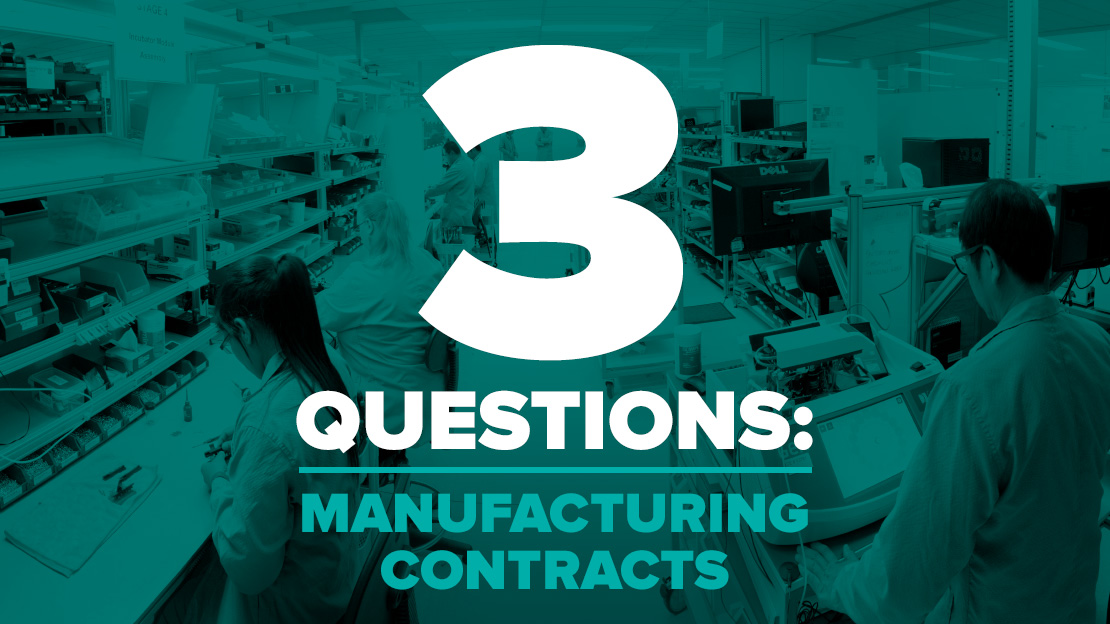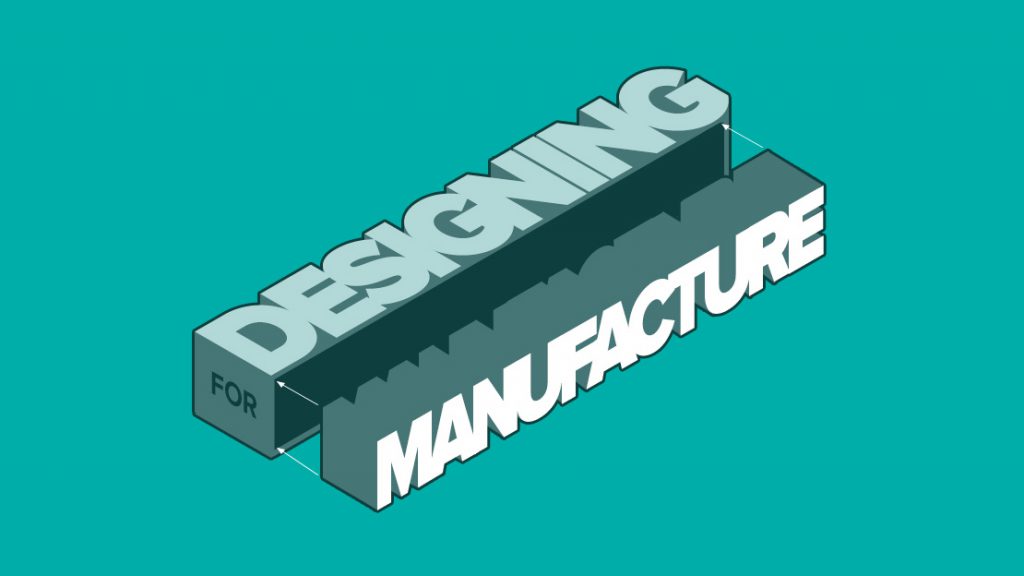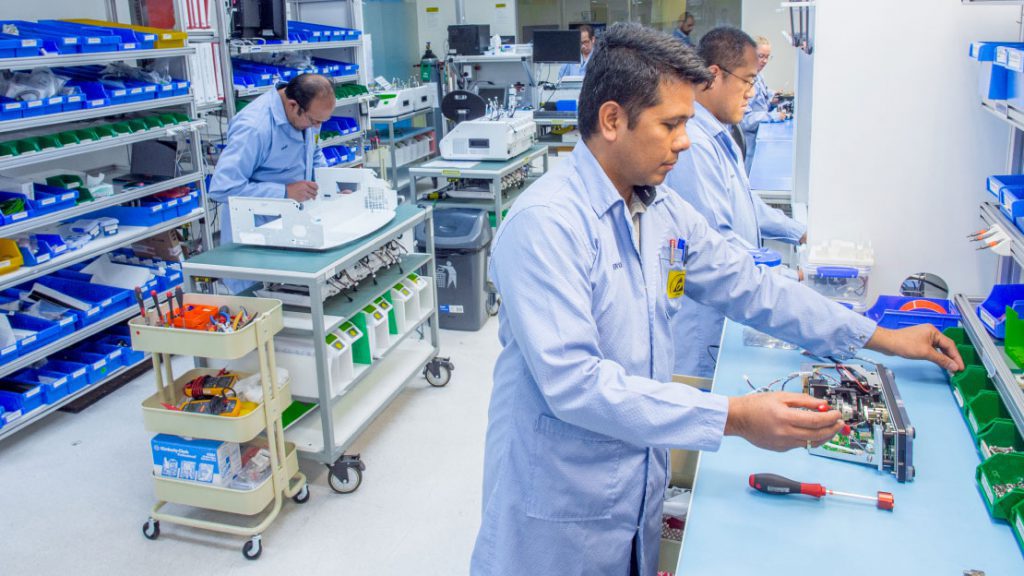
When it comes to choosing a manufacturer for your new product, there are a host of companies lining up to take your money. But with so many choices, how can you get this critical decision right?
While your new product is still at the conceptual stage, it might seem audacious to start thinking about mass production. However, that is exactly what you should do. To optimize the design cost of the product you are developing, you must develop a manufacturing strategy from the very start.
That is why, as a smart product developer, you need to sign a manufacturing contract early — probably long before you feel ready to do so.
The globalization puzzle
Manufacturing has radically changed in the past couple of decades. You have access to providers from all over the world. In fact, the choice is so vast it can feel overwhelming. That is why many people immediately focus on whether to manufacture is onshore, near-shore or offshore.
That approach is a risk. In our experience at Planet Innovation, success depends not on where your manufacturer is, but on the questions you ask before you sign a contract. The best working relationships are like the best personal relationships: they depend on common values and a shared vision of what constitutes success. Both parties need to benefit from good times and feel the pain of the bad times. In the end, any good relationship is all about communication.
Of course, you need your lawyers to go through any agreement with a fine-tooth comb. However, legal agreements are for times when a working relationship has broken down. Prevention is better (and much less expensive) than cure. Your contract is the last resort.
The questions I have listed below are not comprehensive of course. I’ve designed them to give you a sense of how to discover what your manufacturer values, what makes them tick and how to get the best performance from them and from yourself.
Quality systems and IP protection are a given
By the way, I’ve assumed that you have vetted your manufacturer according to whether they meet the global standards for manufacturing in your field. For example, as many of our manufacturing clients produce regulated medical products, PI has achieved ISO 13485:2016 and ISO 9001 certification and are registered with the FDA (Food and Drug Administration), the United States regulator. You would also need to ensure your manufacturer ticks all the regulatory boxes for your industry.
I also assume the manufacturers on your shortlist have a track record and reputation for protecting clients’ IP. This is especially important if you have highly sensitive and valuable intellectual property – you do not want to risk counterfeits making it to market. To protect yourself, make sure the manufacturer will not only sign a contract that protects your IP, but also can demonstrate processes that allow them to enforce that protection. That means both technology and human safeguards.
The three questions you must ask
1. Is your contract manufacturer the right size for your business?
If you are a small or medium-sized company, think carefully before you decide to partner with a large contract manufacturer. Typically, smaller companies need more personal service and product support. If your company is built around a single product or a small suite of products, a failure or a delay can have a devastating impact on your bottom line. You need a champion in the company to get issues or decisions resolved quickly. You don’t want to choose a $1bn revenue manufacturer if you are forecasting $5m in sales, you just won’t get the attention.
On the other hand, you don’t want your manufacturer to be too small, either. They may not be able to deliver the quality you need or to ramp up production fast enough when demand increases. Also, they may be financially dependent on you, and not secure enough to weather any tough times you experience. You need your manufacturer to be financially stable.
How can you tell if the manufacturer is the right size for you? Ask them about areas that you view as important to the relationship. For example, do they guarantee a response time for your queries? That means that they will answer a question within, say, 48 hours. Also, ask for examples and references from their other clients and compare yourself to them. Are they like you, or a little bigger or smaller? Yes! Your manufacturer is the right fit for you.
2. Are they willing to share efficiencies?
Every manufacturing process improves over time. As quantities go up, the cost of supplies usually goes down. Reviewing and continuously improving processes may save on labour costs. Some manufacturers pocket the savings; others share them with their clients. You can guess which kind of manufacturer you are looking for.
Ask your manufacturer if they will open their books to you (called open-book manufacturing), and show you their costs and profits. Make an agreement to share the savings from efficiency gains and you will both have an incentive to think of ways to improve. If your manufacturer does not offer open-book manufacturing, set and agree to efficiency targets and review your contract regularly.
Will your manufacturer charge a penalty to scale up or scale down the production in response to demand? Do they have strong relationships with bigger or smaller manufacturers – onshore, near-shore or offshore – to help reduce costs as you grow or open new markets?
Find out their contingency plans for common problem scenarios, such as a part that goes up in price or a supplier that goes out of business. If you cannot deliver on orders because a single part is unavailable, you can be “held to ransom” for higher prices.
3. Do they have a flourishing corporate culture?
What is the buzz like when you walk around the company? Are the people healthy, relaxed and focused on their work? Are they talking to each other and sharing ideas? Is there the mix of genders, ages and cultural backgrounds that foster rigorous thinking? Are their whiteboards full of ideas, and visual processes for managing projects? Is the workplace clean and cared for, safe, light and at a comfortable temperature?
Quality and efficiency are closely related to a flourishing corporate culture. Employees work more efficiently when they feel valued and treated fairly. They will take the initiative to suggest ways to improve. Conversely, when employees are afraid of losing their job or feel unappreciated, sick or uncomfortable, they cannot work efficiently and do not offer discretionary effort.
Visit your manufacturer, and walk through the whole operation. Speak to people as you go. Ask them if they enjoy their work and why. If you have any concerns, reconsider if the manufacturer is a good fit.
Conclusion
Choosing a manufacturer early is a smart commercial decision. To draw up a shortlist, look for manufacturers who share your values and your ideas about success. Are they the right size for the project you are working on? That means they are not so big that you don’t matter to them, and not so small that they are financially dependent on you. Are they willing to work with you to save money and improve profits, and can they prove it? Do they have a corporate culture that encourages quality, productivity and innovation? Of course, you need the legal issues sorted through, but if you ask the right questions first, you will never have to resort to them.
Learn more about PI Manufacturing.








